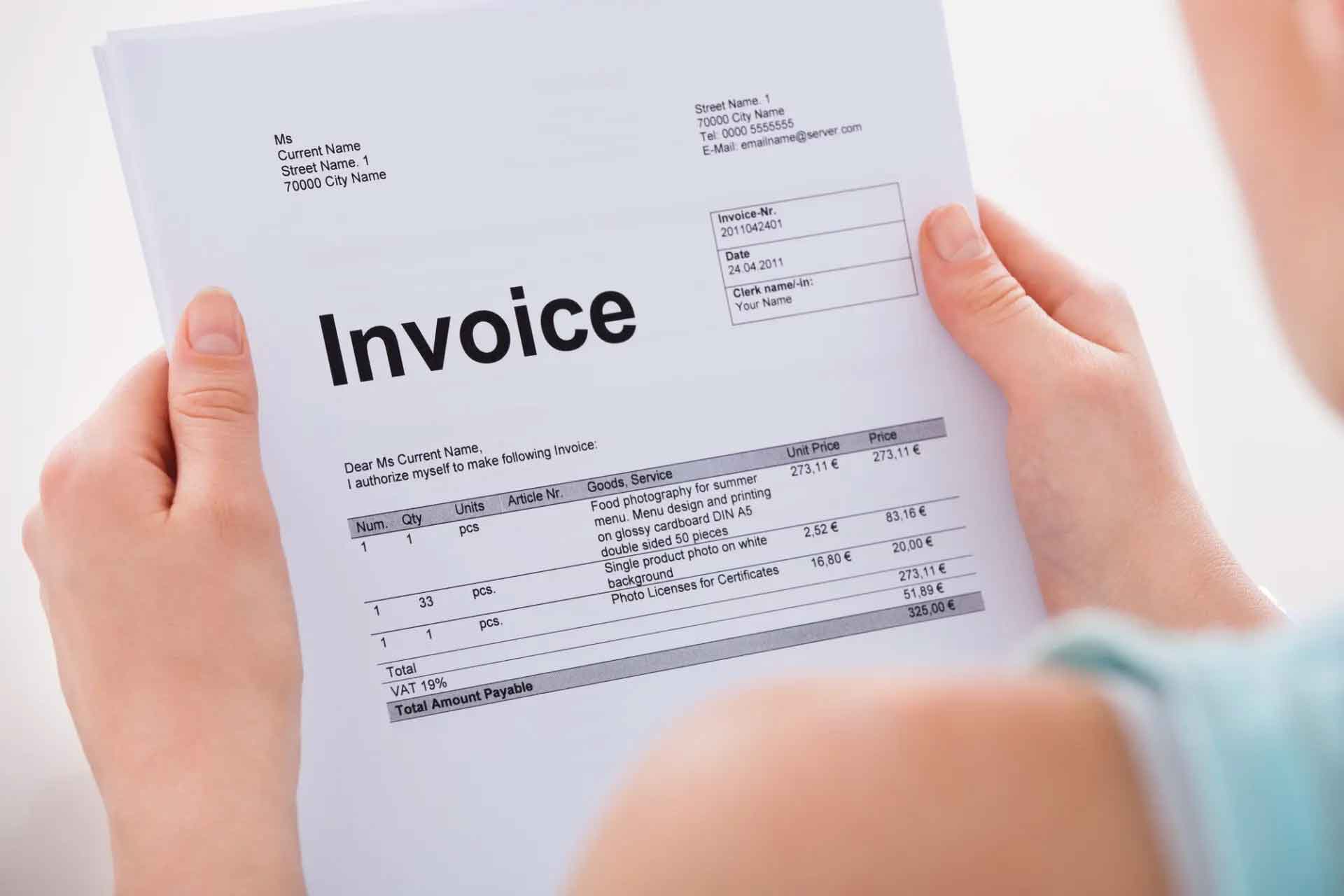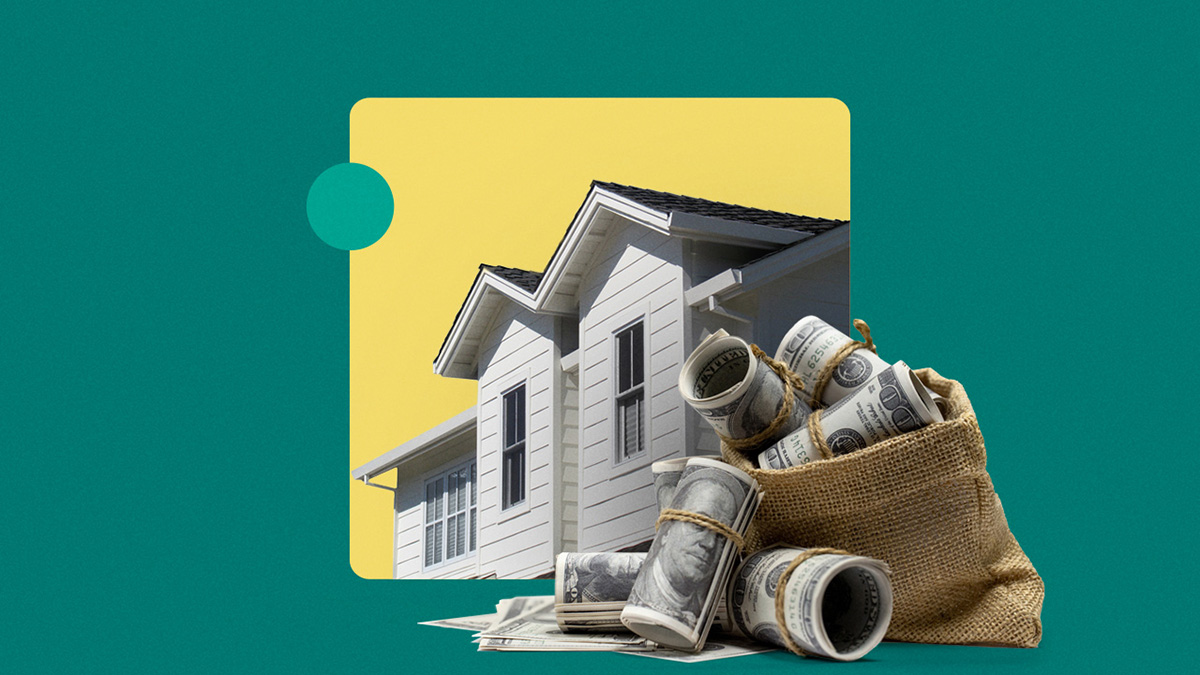

Finance
How To Use A Credit Card To Pay Rent
Published: November 8, 2023
Learn how to use a credit card to pay your rent and manage your finances efficiently with our expert guide. Maximize the benefits of your credit card and simplify your monthly expenses.
(Many of the links in this article redirect to a specific reviewed product. Your purchase of these products through affiliate links helps to generate commission for LiveWell, at no extra cost. Learn more)
Table of Contents
- Introduction
- Finding a Landlord that Accepts Credit Card Payments
- Understanding the Costs and Fees Involved
- Setting Up Your Credit Card for Rent Payments
- Making Rent Payments with Your Credit Card
- Maximizing the Benefits and Rewards
- Monitoring Your Credit Card Usage
- Handling Disputes or Issues with Rent Payments
- Tips for Responsible Credit Card Rent Payments
- Conclusion
Introduction
In today’s digital age, the use of credit cards has become increasingly prevalent in various aspects of our lives. From online shopping to dining out, credit cards offer convenience and flexibility in making payments. But did you know that you can also use your credit card to pay your rent?
Traditionally, rent payments have been made through cash, checks, or direct debit. However, more and more landlords are now open to accepting credit card payments as a convenient alternative. This option can be particularly helpful for individuals who prefer to consolidate their expenses or earn rewards through their credit card usage.
In this article, we will explore how you can use a credit card to pay your rent and navigate the associated costs and fees. We will also discuss tips on maximizing benefits and rewards, as well as handling any disputes or issues that may arise during the rental payment process.
Let’s dive in and discover how you can harness the power of your credit card to simplify your rent payments and potentially enjoy some additional perks along the way.
Finding a Landlord that Accepts Credit Card Payments
Before you can start using your credit card to pay your rent, the first step is to find a landlord who accepts this form of payment. While many landlords still prefer traditional methods such as cash or check, the number of landlords accepting credit card payments is steadily increasing. Here are a few ways to find a landlord that allows credit card payments:
- Online Rental Platforms: When searching for a rental property, consider utilizing online rental platforms that offer filters for credit card payments. Websites such as Zillow, Rent.com, and Apartments.com often provide options to narrow down your search based on specific payment preferences.
- Ask Property Management Companies: If you’re renting through a property management company, reach out to them directly and inquire about their payment options. Some property management companies may be more open to accepting credit card payments than individual landlords.
- Networking and Referrals: Connect with people in your network who may have recently rented a property and ask if their landlord accepted credit card payments. Referrals can be a reliable way to find landlords who are open to alternative payment methods.
- Discuss with Potential Landlords: During the rental application process, when discussing lease terms and payment methods, explicitly inquire about credit card payment options. Landlords may not openly advertise this option, but they may be willing to accommodate your request if you express a genuine interest.
Remember, not all landlords will accept credit card payments, so it’s essential to be patient and diligent in your search. Be prepared to consider properties that may not offer this payment method if other factors, such as location and affordability, are more important to you.
Understanding the Costs and Fees Involved
While using a credit card to pay your rent can provide convenience and potential rewards, it’s crucial to understand the costs and fees associated with this payment method. Here are some key factors to consider:
- Transaction Fees: Some landlords and property management companies may impose a transaction fee for credit card payments. This fee is typically a percentage of the rent amount or a flat fee. Before opting to pay with your credit card, make sure to inquire about any transaction fees involved. Consider whether the potential rewards or benefits outweigh the additional cost.
- Interest Charges: If you choose to pay your rent with a credit card but cannot pay off the full balance by the due date, interest charges will accrue. Credit cards often have higher interest rates compared to other loans or financing options. To avoid paying significant interest charges, it’s crucial to budget accordingly and only use your credit card for rent payments if you can pay off the balance in full each month.
- Rewards and Cashback: On the flip side, using your credit card to pay rent can offer rewards and cashback opportunities. Some credit cards provide cashback or reward points for every dollar spent, which can accumulate over time. Consider credit cards that offer generous rewards in categories that align with your spending habits. However, ensure that the rewards earned offset any fees or interest costs involved in using your credit card for rent payments.
- Credit Utilization: Another factor to consider is how much of your available credit you will be utilizing when paying your full rent amount with a credit card. High credit utilization can impact your credit score negatively. It’s essential to keep your credit utilization ratio below 30% to maintain a healthy credit profile. If your monthly rent payment exceeds this threshold, consider making partial payments with your credit card or using other payment methods for a portion of the rent.
By understanding the costs and fees involved, you can make an informed decision about whether paying your rent with a credit card is the right choice for you. Be sure to carefully review your credit card terms and conditions and consult with your credit card issuer if you have any questions about specific fees or charges.
Setting Up Your Credit Card for Rent Payments
Once you have found a landlord or property management company that accepts credit card payments and have weighed the associated costs, the next step is to set up your credit card for rent payments. Here’s how you can do it:
- Contact Your Credit Card Issuer: Get in touch with your credit card issuer to inquire about their specific process for setting up your card for rent payments. They will provide you with the necessary information and may require you to complete certain forms or provide additional documentation.
- Provide Landlord’s Information: In order to set up your credit card for rent payments, you will need to provide your landlord’s information, including their name, address, and contact details. This information is necessary to ensure that the payment is directed to the correct recipient.
- Authorize Recurring Payments: Depending on your credit card issuer’s policies, you may need to authorize recurring payments for your rent. This allows them to automatically charge your credit card each month for the agreed-upon rent amount. Make sure to carefully review the terms and conditions associated with this arrangement.
- Confirm Payment Dates: Coordinate with your landlord or property management company to determine the due date for your rent payments. This will ensure that you have sufficient funds available on your credit card and avoid any late payment penalties or fees.
- Monitor Your Credit Card Statement: After setting up your credit card for rent payments, it is important to regularly monitor your credit card statements to ensure that the payments are being processed correctly. Keep track of any transaction fees, and verify that the rent amount matches what was agreed upon.
Remember to notify your landlord or property management company once your credit card is set up for rent payments to ensure a seamless transition. Additionally, it may be helpful to set up reminders or automatic notifications on your phone or computer to alert you about upcoming rent payments. This will help you stay on top of your financial obligations and avoid any potential issues or late payments.
By following these steps, you can successfully set up your credit card for rent payments and streamline the payment process for your monthly rent.
Making Rent Payments with Your Credit Card
Once you have set up your credit card for rent payments, it’s time to make your monthly rent payments. Follow these steps to ensure a smooth and hassle-free process:
- Verify Available Credit: Before making a rent payment, check the available credit on your credit card. Ensure that you have enough credit available to cover the full amount of your rent payment, including any potential transaction fees.
- Contact Your Landlord: Notify your landlord or property management company that you will be making your rent payment with your credit card. Confirm the accepted payment methods and any specific instructions they may have.
- Payment Options: Depending on the preferences of your landlord, you may have a few options for making your credit card payment. They may accept payments through their online portal, payment apps, or by manually inputting the credit card information.
- Enter Payment Details: If your landlord requires you to manually input your credit card information, ensure that you accurately enter all the required details. Double-check the card number, expiration date, security code, and any other information requested to avoid any payment processing errors.
- Confirm Payment Authorization: If your credit card requires verification codes or additional authorization steps, be prepared to complete them as instructed. This may involve receiving a one-time passcode via SMS or email and entering it to finalize the payment.
- Keep Proof of Payment: After successfully making your rent payment with your credit card, it’s important to keep proof of payment. Take a screenshot or save a copy of the payment confirmation, transaction receipt, or any other documentation provided by your landlord or credit card issuer.
It’s crucial to ensure that your rent payment is processed on time, so make sure to submit it well before the due date to allow for any potential processing delays. Remember to consistently monitor your credit card statements to verify the rent payment has been properly applied and to keep track of any associated fees or charges.
By following these steps and maintaining open communication with your landlord or property management company, you can make your rent payments with your credit card efficiently and effectively.
Maximizing the Benefits and Rewards
Using your credit card to pay your rent not only offers convenience but also the opportunity to maximize benefits and rewards. Here are some strategies to make the most out of your credit card payments:
- Choose a Rewards Credit Card: Consider using a credit card that offers rewards specifically tailored to your spending habits. Look for cards that provide cashback, travel points, or other perks that align with your financial goals and lifestyle.
- Pay Attention to Bonus Categories: Some credit cards offer higher rewards for specific categories, such as groceries, dining, or gas. If your credit card has bonus categories, try to make your rent payment using the category that offers the most rewards. This way, you can earn even more rewards on your monthly rent payment.
- Utilize Sign-Up Bonuses: If you’re considering getting a new credit card, look for ones that offer attractive sign-up bonuses. These bonuses often require you to meet a minimum spending threshold within a designated timeframe. Using your credit card to pay your rent can help you reach these spending goals more quickly, earning you valuable rewards.
- Keep an Eye on Promotions: Credit card issuers occasionally run promotions or limited-time offers that provide extra rewards or bonuses for certain spending categories. Stay informed about these promotions to take advantage of any opportunities to earn increased rewards on your rent payments.
- Pay Off Your Balance in Full: To fully reap the benefits of using your credit card for rent payments, it is crucial to pay off your balance in full each month. By doing so, you avoid accruing interest charges and ensure that the rewards you earn outweigh any fees or costs associated with the payment.
- Track Your Rewards: Regularly monitor your credit card rewards to keep track of the accumulation and redemption options. Many credit card issuers have online portals or mobile apps that provide details about your rewards balance and redemption options. Use these resources to make informed decisions about how and when to redeem your rewards.
Remember that responsible credit card usage should always be the priority. Only use your credit card to pay your rent if you can comfortably afford to pay off the balance in full and if the benefits outweigh any associated fees or costs.
By strategically selecting and using your credit card, you can maximize the benefits and rewards, potentially earning valuable perks on your rent payments.
Monitoring Your Credit Card Usage
After setting up your credit card for rent payments and maximizing the benefits and rewards, it’s important to stay vigilant and monitor your credit card usage. Here are some tips for effectively monitoring your credit card activities:
- Regularly Check Your Statements: Take the time to review your credit card statements each month. Look for any discrepancies or unauthorized charges. If you notice any discrepancies, contact your credit card issuer immediately to report the issue and resolve it promptly.
- Set Up Account Alerts: Most credit card issuers provide account alert services that can notify you of various activities on your card, such as large purchases, balance updates, or payment due dates. Take advantage of these alerts to stay informed and quickly address any suspicious activity.
- Monitor Your Credit Score: Your credit score plays a crucial role in your financial health. Use reputable credit score monitoring services to keep an eye on any changes in your score. This can help you identify any unexpected negative impact and allow you to address it promptly.
- Review Rewards and Benefits: Keep up-to-date with the rewards and benefits associated with your credit card. Credit card issuers may make changes to reward programs, bonus categories, or redemption options. By staying informed, you can ensure that you are utilizing your card’s benefits effectively.
- Budget and Track Expenses: Exercise responsible financial management by creating a budget and tracking your expenses. This will help you understand your spending patterns, identify areas where you can cut back or optimize, and ensure that you have sufficient funds to pay off your credit card balance each month.
- Secure Your Information: Protect your credit card information by only making payments on secure websites or through trusted payment gateways. Avoid providing your credit card details to unfamiliar or unverified sources. Additionally, consider using two-factor authentication or other security measures offered by your credit card issuer to add extra layers of protection.
By actively monitoring your credit card usage, you can detect and address any issues or discrepancies promptly, maintain a healthy credit profile, and ensure that you are making the most of your credit card benefits and rewards.
Handling Disputes or Issues with Rent Payments
While paying your rent with a credit card can offer convenience and potential rewards, there may be instances where disputes or issues arise. Here are some steps to handle such situations:
- Contact Your Landlord: If you notice any discrepancies or problems with your rent payment, the first step is to contact your landlord or property management company directly. Clearly explain the issue and provide any relevant supporting documentation, such as payment confirmation or bank statements.
- Document Everything: Keep a record of all communication with your landlord regarding the dispute or issue. This includes dates, times, and summaries of conversations or emails exchanged. Having a well-documented record of the situation will be helpful if you need to escalate the matter.
- Reach Out to Your Credit Card Issuer: If you are unable to resolve the dispute or issue with your landlord, contact your credit card issuer. Explain the situation and provide them with all the relevant details and documentation. They may be able to assist you in resolving the problem, especially if there are unauthorized charges or payment processing errors.
- Dispute the Charge: If you believe there has been an error or fraudulent charge on your credit card related to your rent payment, you have the right to dispute the charge with your credit card issuer. This will involve providing evidence of the dispute and following your credit card issuer’s specific dispute resolution procedures.
- Know Your Rights: Familiarize yourself with the landlord-tenant laws and regulations in your jurisdiction. Understanding your rights and responsibilities as a renter can help you navigate disputes more effectively and identify any potential landlord violations.
- Seek Legal Advice if Necessary: In some cases, disputes with landlords may require legal intervention. If you are unable to resolve the issue independently or with the help of your credit card issuer, consider seeking legal advice from a professional familiar with rental laws in your area.
Remember to remain calm and professional throughout the dispute resolution process. Maintain open lines of communication, keep accurate records, and be prepared to provide supporting evidence when needed.
Handling disputes or issues with rent payments can be stressful, but by taking proactive measures and seeking appropriate assistance, you can work towards a resolution that is fair and satisfactory.
Tips for Responsible Credit Card Rent Payments
Paying your rent with a credit card can offer convenience and potential benefits, but it’s important to approach it responsibly. Here are some tips to ensure responsible credit card rent payments:
- Create a Budget: Before using your credit card for rent payments, establish a solid budget. Understand your income, expenses, and financial obligations to ensure you can comfortably afford the rent payment and still meet other essential financial responsibilities.
- Pay Off Your Balance in Full: To avoid interest charges and potential debt, strive to pay off your credit card balance in full each month. This will help you maintain control over your finances and ensure that you don’t accumulate unnecessary interest charges.
- Choose the Right Credit Card: Select a credit card specifically suited for your needs and spending habits. Look for cards with low interest rates, rewards that align with your lifestyle, and favorable terms and conditions. Take your time to compare different options before making a final decision.
- Set Payment Reminders: Missing a rent payment can have serious consequences, including late fees or damage to your credit score. Set up payment reminders on your phone or through your credit card issuer’s online portal to ensure that you never miss a payment deadline.
- Keep Track of Transaction Fees: Be aware of any transaction fees associated with using your credit card for rent payments. Factor these fees into your budget and determine if the potential rewards or benefits outweigh the added cost.
- Maintain Emergency Funds: While credit cards can provide financial flexibility, it’s essential to have emergency funds set aside for unexpected expenses or emergencies. Relying solely on your credit card for rent payments can be risky if you find yourself facing unexpected financial challenges.
- Monitor Regular Credit Card Statements: Take the time to review your credit card statements regularly. Keep an eye out for any unauthorized charges, incorrect amounts, or unfamiliar transactions. If you notice any discrepancies, contact your credit card issuer immediately to address the issue.
- Communicate with Your Landlord: Maintain open communication with your landlord or property management company regarding your credit card rent payments. Notify them promptly of any changes to your payment method or if you encounter any issues along the way. This will help avoid misunderstandings and ensure a smooth payment process.
- Practice Financial Discipline: Lastly, exercise self-discipline when it comes to your credit card usage. Avoid overspending, stick to your budget, and only use your credit card for rent payments if it aligns with your financial goals and if you can responsibly manage the associated costs and fees.
By following these tips, you can make responsible credit card rent payments and maintain financial stability while enjoying the convenience and potential benefits of using your credit card for this purpose.
Conclusion
Using a credit card to pay your rent can offer convenience, flexibility, and potential rewards. However, it’s important to approach this payment method responsibly and make informed decisions to ensure a positive financial experience.
When considering using your credit card for rent payments, take the time to find a landlord who accepts credit card payments and carefully weigh the associated costs and fees. Understand the transaction fees, interest charges, and potential rewards before making a decision.
Setting up your credit card for rent payments involves contacting your credit card issuer, providing your landlord’s information, and authorizing recurring payments. Monitor your credit card usage, keep track of your statements, and be mindful of your credit utilization to maintain a healthy credit profile.
In the event of disputes or issues with your rent payments, communicate directly with your landlord and, if necessary, involve your credit card issuer. Document all communication and be aware of your rights and legal options if needed.
Ultimately, responsible credit card rent payments require budgeting, staying on top of your finances, and utilizing your credit card wisely. Pay off your credit card balance in full each month, choose the right credit card for your needs, and maintain emergency funds for unexpected expenses.
By following these tips and maintaining responsible credit card usage habits, you can leverage the benefits of using your credit card for rent payments while maintaining financial stability and maximizing rewards.
Remember, responsible financial management is key when using credit cards for rent payments or any other expenses. Make informed decisions, stay vigilant, and enjoy the convenience and potential rewards that come with using your credit card wisely.














